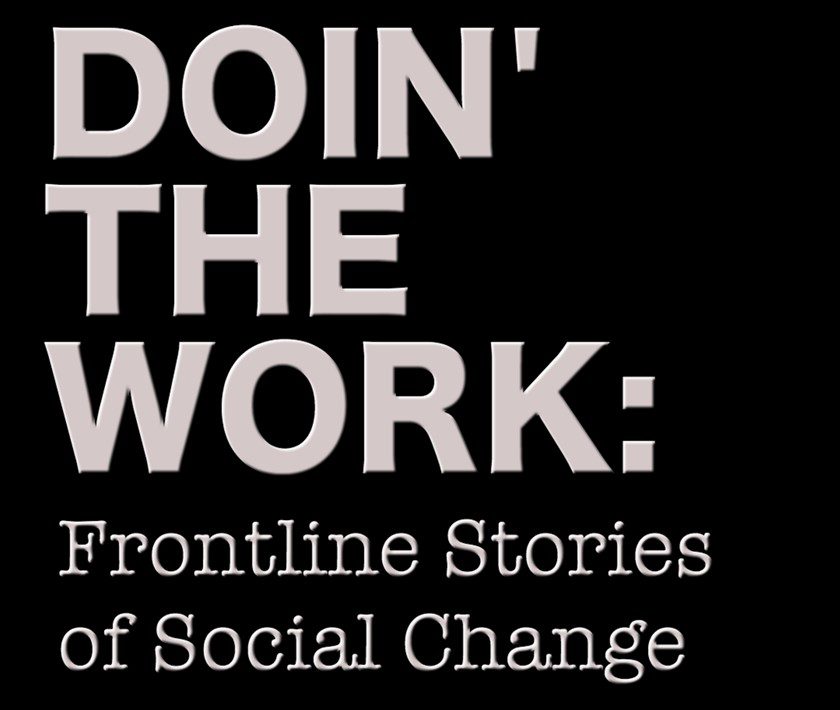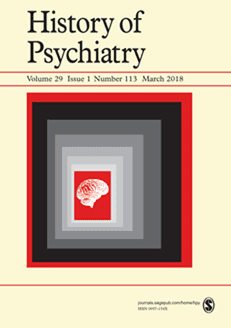
Archive for June 2022
New developments in military and veteran suicide research
Disabled People Working in the Disability Sector: Occupational Segregation or Personal Fulfilment?
Factors Associated with Intention to Initiate Pre-exposure Prophylaxis in Cisgender Women at High Behavioral Risk for HIV in Washington, D.C.
The Use of Garden Memorial Ritual for Survivors, Families, and Healthcare Workers as a Result of the COVID-19 Pandemic in Nursing Facilities
School Counseling for College and Career Readiness Using Existential Theory model: A humanistic approach to counseling students of color in urban school settings
Working-Class Institutions, Amazon and The Politics of Local Economic Development in Western Queens
Which Students With Disabilities are Placed Primarily Outside of U.S. Elementary School General Education Classrooms?
The relationship between homework adherence and outcome in family-based cognitive-behavioral therapy for early-onset obsessive compulsive disorder
Dangerous Love: Sex Work, Drug Use, and the Pursuit of Intimacy in Tijuana, Mexico

Trends and disparities in unmet treatment needs for co-occurring depression and alcohol use disorders among young adults in the U.S.
Managing Access to Social Housing in Australia: Unpacking policy frameworks and service provision outcomes
Intervention Tournaments: An Overview of Concept, Design, and Implementation
Impact of Moderating Demographic Variables on a Health Intervention for People with Serious Mental Illness
Experiences of Exclusion: How Policy Shapes the Lives of Latinx and Asian Immigrants
Podcast: Rachael Bedard Explains Health Care in Jails

Neurotrophic factors, childhood trauma and psychiatric disorders: A systematic review of genetic, biochemical, cognitive and imaging studies to identify potential biomarkers
A framework of evidence-based decision-making in health system management: a best-fit framework synthesis
Staff perspectives on barriers to and facilitators of quality of life, health, wellbeing, recovery and reduced risk for older forensic mental-health patients: A qualitative interview study
International Family Planning Assistance: USAID Has Faced Implementation Challenges Related to U.S. Policy and COVID-19
The impact of the COVID-19 pandemic on adolescent mental health: Research report
Using agent-based modelling to test hypotheses on the role of neighbourhood social mechanisms in the development of small-area health inequalities
Injustice in the family courts: systemic issues and considerations in the selection of expert witnesses
Assessing mindfulness and self-compassion facets as mediators of change in patients with depressive, anxious and adjustment disorders: Secondary data analysis of a randomized controlled trial
Childhood psychological maltreatment and work–family conflict throughout adulthood: A test of self-concept and social mechanisms.
Shining light on the dark side of action research: Power, relationality and transformation
The persistence of legal uncertainty on EU citizens’ access to social benefits in Germany
Infrastructure and Wellbeing in Wales
Prevalence and factors associated with psychological distress among patients on warfarin at the Uganda Heart Institute, Mulago Hospital
Taking a One-Week Break from Social Media Improves Well-Being, Depression, and Anxiety: A Randomized Controlled Trial
Comparative Effectiveness of Antipsychotics in Preventing Readmission for First-Admission Schizophrenia Patients in National Cohorts From 2001 to 2017 in Taiwan
The Association between Family Care and Paid Work among Women in Germany: Does the Household Economic Context Matter?
Vulnerability and Pathways to Precarity: How COVID-19 Has Affected Japan’s Nepali Immigrants
The State of Local Humanitarian Leadership: A learning report on a series of LHL online convenings held in Asia, the Middle East and Northern Africa, the Pacific, and West Africa
Sexual Harassment and Gender Inequality in the Labor Market*
Mental Health Literacy in Sport: The Role of the Social Work Profession
EMCDDA webinar: Women and drugs in Europe — why gender matters
Neurodiversity Guidance for employers, managers, staff and students
Multidirectional carework across borders: Latina immigrant women negotiating motherhood and daughterhood
A Systematic Review of Objective Factors Influencing Behavior in Public Open Spaces
Racial Equity in Psychiatry and Mental Health – Jessica Isom, MD, MPH

Ritualizing Nonreligion: Cultivating Rational Rituals in Secular Spaces
Annual Credit Checks for Adolescent Youth in Foster Care: Factors Associated with Identity Fraud Victimization
Changed Landscape, Unchanged Norms: Work-Family Conflict and the Persistence of the Academic Mother Ideal
Feasibility and Acceptability of an Internet-Based Intervention for Young Adults with ADHD
Managing Chineseness: neurasthenia and psychiatry in Taiwan in the second half of the twentieth century

History of Psychiatry, Ahead of Print.
The present study investigates the role of Taiwanese psychiatrists in turning neurasthenia into a culture-specific disease in the late twentieth century. It first delineates the shift in both explanatory models of psychoneuroses and patient population in post-World War II Taiwan. Neurasthenia became a focus of international attention in the 1970s and 1980s with the advance of cultural psychiatry, and, as China was closed to the outside world, Taiwanese psychiatrists were influential in framing the cultural meaning of neurasthenia. With the rise of post-socialist China, Taiwan lost its status as a key laboratory of Chinese studies. This paper argues that the history of neurasthenia during the period was closely associated with the professional development and national identity of Taiwanese psychiatrists.
Cascading Effects of Cumulative Trauma: Callous Traits Among Justice Involved Youth
Mother-Child Interaction of Boys With ADHD: A Behavioral Observation Study
Guatemalan adolescents’ hopes and dreams: A qualitative study of drawings and characteristics of future selves.
Post–COVID Conditions Among Adult COVID-19 Survivors Aged 18–64 and ≥65 Years — United States, March 2020–November 2021
